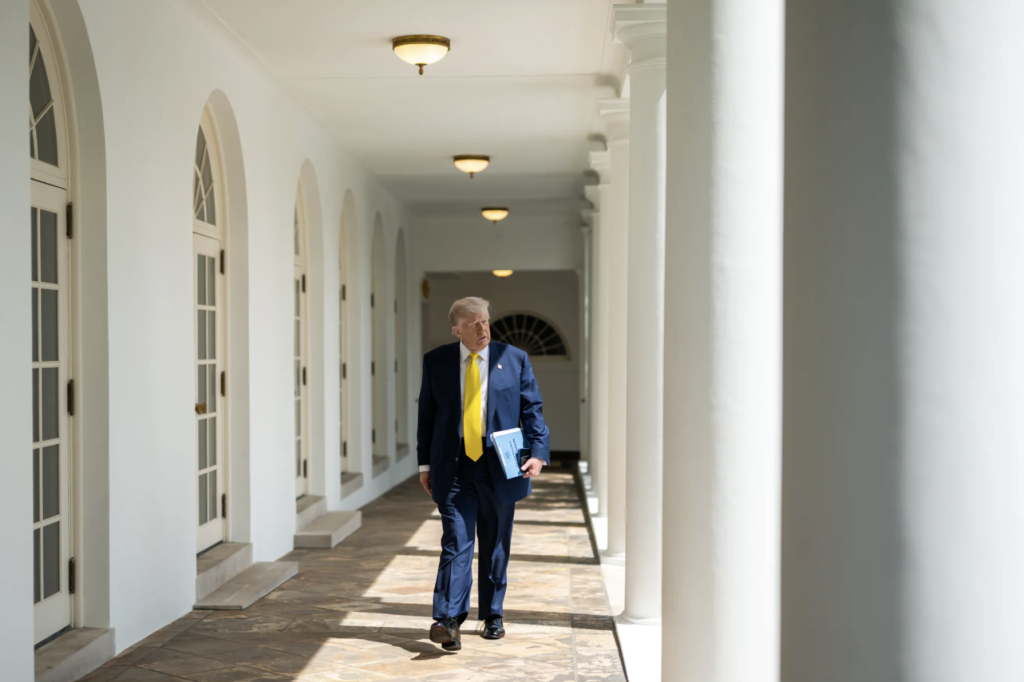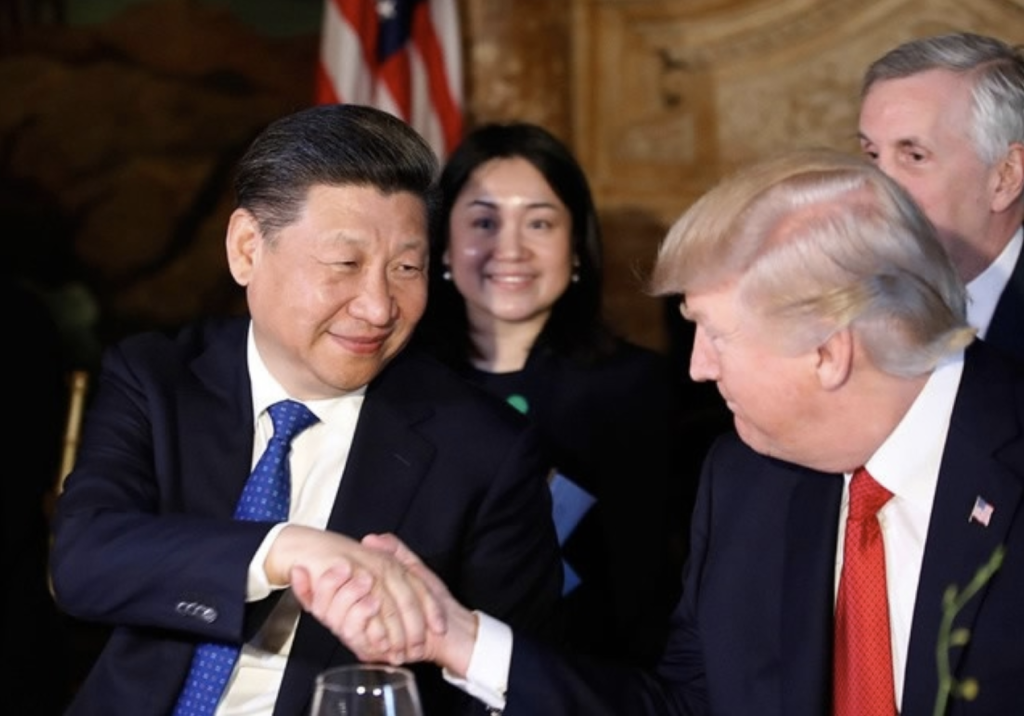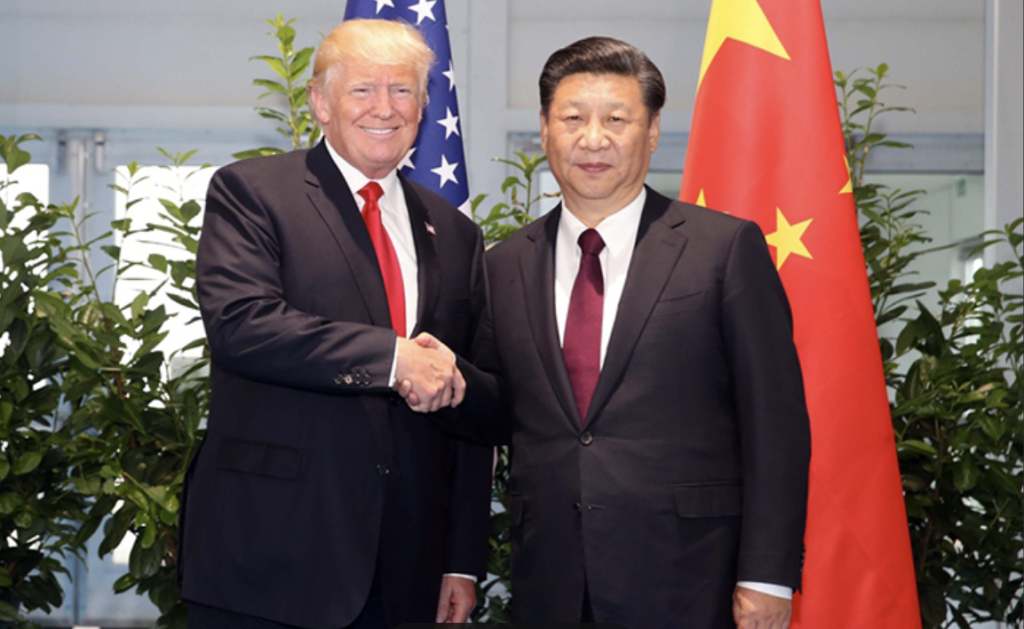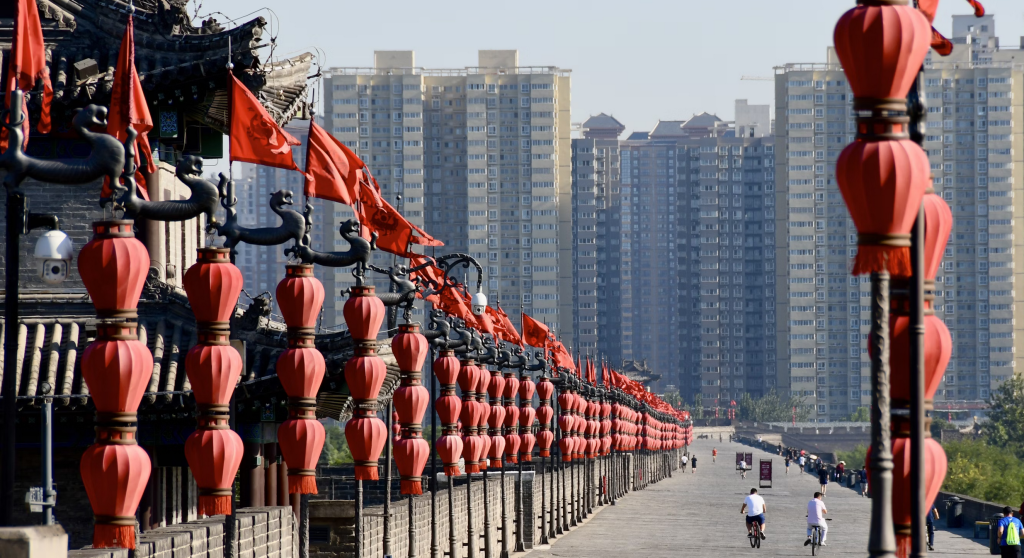Japan’s Prime Minister Takaichi Finally Says Something Close to What Beijing Wants to Hear
The Unbearable Busyness of Hummingbirds with Xiang Biao
- Interviews
 Alice Liu
Alice Liu- 10/05/2025
- 0
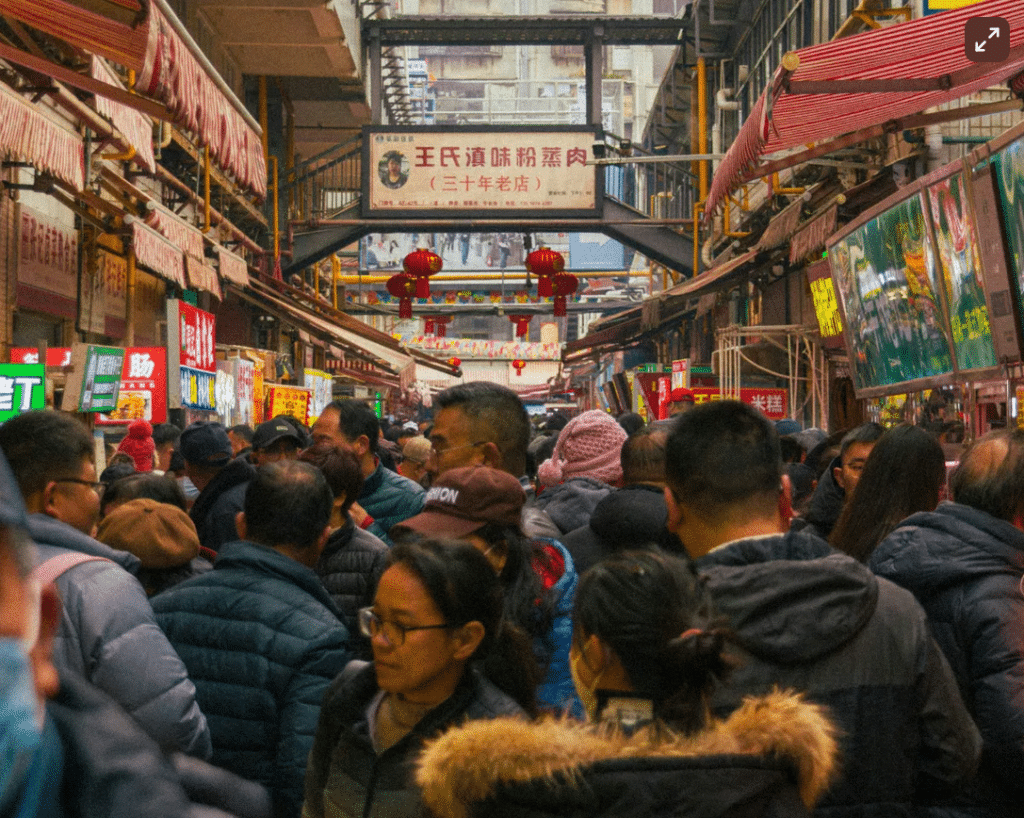
Kunming, Yunnan, PRC. May 28, 2025. Source
Apart from the author of From the Soil, Fei Xiaotong, perhaps no Chinese anthropologist has become as well known to the public as Xiang Biao. His academic career began in the early 1990s at Peking University, where he wrote a dissertation on “Zhejiang Village”, communities of Wenzhou merchants in Beijing—a project he later continued at Oxford University in the UK. Currently the director of the Max Planck Institute for Social Anthropology in Germany, Xiang’s research interests span migration, labor, education, state–individual relations, public consciousness, and economic transformation.
Yet Xiang’s more important role over the past decade has been as a leading public intellectual in mainland China. He is widely recognized for his subtle observations of social contradictions, for offering comfort to young people in the face of deep unhappiness amid “involution,” and for his genuine public presence, which has won him deep admiration of younger generations. He urges people to draw strength from reality and from their immediate surroundings.
One of Xiang’s most striking metaphors compares the precarious state of Chinese survival to that of a hummingbird, “fluttering its wings frantically just to stay aloft”. The image, once proposed, resonated widely. Today, The Monitor speaks with Dr. Xiang to shed light on the bewilderment of China’s younger generation.
Alice Liu: Eleven years ago, you famously remarked that “Chinese people are like hummingbirds, flapping their wings constantly just to stay afloat.” The hummingbird metaphor went viral. Can you elaborate on it for our readers? How did this metaphor arise?
Xiang Biao: As an anthropologist, I habitually use vivid metaphors to convey my thought. At the time, I wanted to describe the lived conditions of many Chinese people, so I came up with the image of a hummingbird—an animal that must frantically vibrate its wings to remain aloft. If it ever slows down, it will fall to the ground immediately. This image immaculately captures the condition of Chinese people: they are busy to the point of exhaustion, not just driven by a desire for success but more so by a fear of failure, a fear of “falling.”
The general sentiment is that the golden age in which ordinary people could make substantial money and advance socially has already passed. Like the hummingbird, people’s burnout was no longer fueled by hope or ambition, but primarily out of the fear of lagging behind if they slowed down. That is what the metaphor conveys.
AL: Alongside the hummingbird analogy, you also frequently use a concept of “suspension” (悬浮). What do you mean by it?
XB: Suspension refers to a living condition in which a person feels they must seize every minute and work extremely hard, because if they don’t grind at the present moment, they will fall behind everyone else. People work so intensely that they “suspend” the meaning of the current moment. Suspension can take the form of casting aside many equally important human needs—hobbies, friendships, family time, rest—in order to accumulate money for the future.
AL: Why does it matter? What does it reveal about Chinese society?
XB: There are two main reasons. First, it has severe implications for mental and physical health. I once met a middle-aged taxi driver in Guangdong who drove more than ten hours a day. He complained of back pain and said it was rather difficult for him. Instinctively, I told him, “You need to look after your health; you should reduce your working hours.” And he replied, “Health? Health is a concern for the future.”
The way he said it—“health is a concern for the future”—is telling. With little choice otherwise, he suspended the need to care for his health to maximize savings and secure a supposedly comfortable life in the future. That is reason one—suspension has direct mental and physical consequences for individuals.
The second reason is structural. Suspension fosters a condition in which people routinely turn a blind eye to present problems. Many migrant workers I met in the 1990s and later were very upset with their working conditions, which were often exploitative and conflict-ridden. Yet instead of confronting these issues, they hopped from job to job, factory to factory, hoping to maximize savings, free themselves from the horrible workplace, and eventually escape to a better economic and social status.
This condition of suspension helps explain why Chinese society can appear economically dynamic and entrepreneurial, while very few people take the initiatives for making social changes at the grassroots level. Suspension captures this contradiction: everyone is working tirelessly, seizing the moment, while simultaneously turning away from deeper structural problems.
AL: Could you explain the concept of suspension from the perspectives of social life and labor?
XB: Social life and labor are really deeply interrelated in China. Using suspension, I sought to broaden our examination of labor conditions into the domain of social life. To understand people’s working conditions, one should not only look at the workplace—factories or companies—but they should also gauge how life as a whole is organized, in particular, how people distribute their time throughout the day.
Chinese white-collar workers today, speaking in terms of material conditions, have a decent working environment—air-conditioned offices, free lunch, and things like that. Yet they are sometimes asked to work 10, 12, or even more hours. Their WeChat is always on, and their boss can call them at any time. Such work conditions inevitably bleed into their social life.
The suspension of labor manifests itself as maximizing savings, ignoring problems in the workplace, and treating work with an indifferent manner. This gives rise to an eerie situation where workers dislike their jobs, yet work very hard. It seems contradictory, but the logic goes as follows: “I don’t like what I’m doing now at all, but I will suspend my concerns and work as hard as possible at this job I dislike. Why? Because by doing so, I can save enough money to quit and move on to another job.”
I coined another concept for this situation: the “work cave” or “work hole.” People throw themselves into this hole—working endlessly and single-mindedly, suppressing other needs, in the hope of saving enough money and leap up into a “normal” life someday.
AL: What about social life specifically?
XB: The propensity to suspend also extends into social life. For example, the Chinese constantly worry about the price of housing properties. After saving money, one must translate it into assets via housing. They aim to buy an apartment at the right place and time in order to maximize the potential of value appreciation, As a result, home is treated as little more than a commodity—a physical space with a price, an asset.
Suspension in social life gives rise to what I call the “loss of the nearby”: the loss of the feeling of living in a concrete neighborhood, and the erosion of specific human relations, such as those shared with neighbors.
AL: The concept of suspension triggered wide discussion online, especially among young people. Why do you think your theory appeals to the public?
XB: It puts forth an image of life. I didn’t intend “suspension” as a top-down, authorized lecture, but rather as a tool people can use to make sense of their own experience. China’s younger generation feels anxious and confused at the moment. The notion of suspension does not simply state the obvious by instructing people that the economy is exploitative or that the political system is unfair. While underscoring structural inequalities, it also allows people to reflect on how they experience and cope with structural problems from within the structure.
People immediately recognize their own experiences in this concept. As some told me, it captures their pain and resonates with them right away. It also opens up public discussion on the meaning of life. Since every present moment is assumed to serve the future, people no longer live for the sake of the here and now. So people ask all kinds of questions: Is this a good life? Is it worth living? Young people began to discuss: What is my relationship with the present? If I say I want to cherish this moment, what does that really mean? Some turn to spiritual questions: should we practice Buddhist mindfulness, or follow other philosophies?
AL: You’ve noted a duality in Chinese lives by saying that people are entrepreneurial in their means yet conformist in their ends. This refers to how individuals tend to take risks in their daily pursuits but conform in major life decisions such as marriage. How do you make sense of this contradiction?
XB: That’s an excellent summary of people’s lives. If you look at the individual level, everyone appears very active, very energetic, and entrepreneurial. Every moment is about planning, strategizing how to get ahead of others, calculating, and so on. Yet in the bigger picture—when it comes to questions like what kind of life one should live, whom to marry, or whether to quit a high-paying and secure job one dislikes—people’s answers remarkably converge to conservatism. Most would say it is inadvisable to quit that boring job.
This contradiction has something to do with both history and the broader structure of the Chinese economy. But the immediate cause I can offer now is that we need to look into how competition is organized in China.
The Chinese economy after the 1980s is an extremely competitive one. And in part because it is so inclusive—the vast majority of the population participates in the national economy geared toward development—1.4 billion people are playing the same game. Of course, competition itself is nothing unique to China; humans always compete, especially in market economies. What is unusual in China is that competition is structured in a very tight manner.
The view of what people should compete for, the kinds of rewards they pursue, and what they regard as desirable in life are highly homogeneous across the population. If everyone held different goals and different perceptions of what constitutes a good life, the competition in China would be far less intense. Yet here we are—1.4 billion people subscribing unanimously to one single set of ideals.
Alongside this ideological homogeneity are tightly organized institutions, such as the education system and professional promotion structures. The education system itself is centrally designed: what is taught, when and how, and how students with different scores progress from one level to another. It determines what kinds of students can enter which universities, and what kinds of jobs graduates from which universities can secure. All is rigidly arranged. Even in the marriage market, people are evaluated according to what kind of property they own or what degree they have.
So on the one hand, people who engage in fierce competition exhibit entrepreneurial spirits, yet at the same time, this competition is tightly structured, informed by homogeneous goals, and carried out according to standardized procedures and criteria. This is what keeps people so conformist: they must stay on this narrow but well-established path of progress, and they dare not look for alternatives.
AL: Let’s wind back to the previous concept you mentioned—the “loss of the nearby.” Could you briefly introduce this idea to our readers? How do you define it?
XB: The “nearby” basically refers to your immediate surroundings. At work, the nearby is your office; when traveling, it can be your car or the subway train. Why did I find these seemingly banal spaces interesting? I first spoke to the media about the “disappearance of the nearby” in the year 2019, because I observed a widespread phenomenon in Chinese society—which I believe is also globally relevant—where young people see the world through two extremes.
One extreme is the “very near”: the self. The younger generation is heavily consumed by individual concerns such as academic scores, jobs, and intimate relationships. The other extreme is what I call the “far away”—global crises or dramatic events happening elsewhere, of which we actually know very little in terms of context or detail, yet which social media constantly feeds us in highly emotionally charged ways.
One phenomenon I observed over the past decade is that people constantly undergo emotional swings in their day-to-day lives. One day, they feel very hopeful, and the very next, they sink into depression—all within a very short span of time. They have abundant knowledge of the self and of the world, yet in between, the nearby is emptied out.
Who are their neighbors? Who cleans the street in front of them? How is the local economy organized? Why was the rubbish system well managed last year, but is malfunctioning this year? Young people have very little grasp of how everyday life around them is organized, nor are they interested in learning more about it.
AL: What implications does the “nearby” hold for Chinese society then? What might the “nearby” accomplish?
XB: The nearby is crucial because it serves as the interface between the individual and the larger world. It is only through this interface that one can establish concrete relations with the world in ways that allow for action. Without attention to the nearby, one’s worldview could become extreme, highly emotional, and divisive. As we see, many young people today harbor a profound powerlessness—as if the outer world is constantly crashing down upon them, rendering them unable to respond.
This emotional vulnerability, though valid, also arises from their inability to recognize that these problems are issues that can be acted upon. Because even the most severe problem is shaped by micro-level mechanisms.
Take gender relations as an example. People sometimes speak of it as if it were one gigantic, evil monster punishing the vulnerable. But of course, that is not the whole picture. Gender relations play out in everyday life, and while they can certainly be oppressive in many respects, they are not beyond response.
Simply observe how they are organized in the kitchen, in the neighborhood, on the street, and in your workplace. From there, you can begin to find ways to address gender inequalities. These are not bolts from the blue. That is the backdrop against which I proposed the concept of the nearby.
AL: Yes, focusing on the nearby can help young people relieve anxiety and rebuild subjectivity. I believe you proposed this concept prior to COVID. Now that we’re three years past the zero-COVID policy, does the nearby still matter? What does it mean for the younger generation?
XB: I proposed the idea of the loss and the importance of the nearby before COVID. But it’s true that during the pandemic, China’s zero-COVID policy created widespread depression, anxiety, and disillusionment among young people. They felt they were losing control over their own lives, and therefore found the idea of the nearby particularly appealing. I didn’t devise the concept specifically to address COVID, but the conditions of the pandemic popularized it because people felt a deep psychological need to regain control.
Now, of course, quarantine has been lifted. But the economy is even more stagnant than it was during COVID, because at least then, people still believed things would pick up once the pandemic was over. Today, the unemployment rate remains high, with no likelihood of the job market rebounding anytime soon. The world is volatile, and the U.S. has further destabilized the global system.
As the macro situation worsens, people are gradually realizing they must forgo the expectation that the economy as a whole will improve in the near future. For individuals, the way forward against this bleak backdrop is to act in everyday life, here and now. Will that improve material conditions for us? I’m thinking no. But it will certainly strengthen people psychologically, reassuring them that life still has purpose. The nearby cannot directly counteract the economic situation, but I see it as an absolute essential for individuals and communities to build resilience.
Evidently, many structural changes are needed in the Chinese economy, let alone in the U.S., where I believe the situation is even worse. But resilience must come first, because restructuring the global capitalist system will be a long-term battle. To prepare for it, we must plant our feet firmly on the ground and start by building local solidarity and local resilience. Otherwise, one can be easily wiped away by one or two dramatic episodes in the global economy.
AL: Another major theme of your work is migration. In a recent article you examined Chinese middle-class migration to Europe. Could you briefly share some insights from your findings? And why did you focus on middle-class migrants in particular? What does this group tell us about cross-continental migration?
XB: Middle-class migration from China merits attention because it is expanding. It is actually the fastest-growing segment of migration. Due to visa restrictions, unskilled labor migration from China, especially to Europe, has always remained tiny. Most labor migration from China goes to Asia and Africa, to which Chinese companies’ overseas investments are closely tied.
Middle-class migration from China to Europe is not driven primarily by economic incentives. They are not headed towards Europe to earn more. On the contrary, Chinese people who move to Berlin typically earn less, and their migration is financed by renting out their surplus flats in Beijing or Shanghai.
So why do they do it? First, for their children’s education. They want their kids to attend schools in Europe. Second, for their own lifestyle. Many feel that China is teeming with competition and pressure, and they want a more relaxed life. Third, for the environment—air, water, and general quality of life. Older people in particular are very sensitive to these issues.
All of these are related to social reproduction: childcare, education, medical care, and even retirement. So there is a shift from labor migration, where people travel overseas to earn money, to reproduction migration, where migration itself becomes a form of consumption.
AL: Thank you for that. Another question: compared with earlier waves of Chinese immigration, like those from the 1980s, 1990s, or even just the past decade, how has today’s so-called “runology” (润学) migration changed in motives and needs? What are some of the shifting patterns compared to previous decades?
XB: Compared to the 1980s and 1990s, one of the biggest changes in post-COVID emigration is that it has become much less planned. In the last century, people migrated with very clear goals to settle in their destination. It was essentially a settlement-led migration. But during COVID, many people with good jobs or sizable assets simply wanted to run away from the mainland. Run (“润”), right?
Many left China without a clear plan for where to go, without thinking through the long-term future. They just wanted to leave first. That is number one.
Number two: In Europe, with the rise of the far right and the economic slowdown, the political atmosphere toward China has grown increasingly hostile. The likelihood of settling down long-term has become slimmer than before. The long-term future is even less certain, yet people keep on moving.
Despite geopolitical uncertainties and a lack of employment opportunities, the desire to migrate from China to Europe remains high among the middle class. At the macro level, the era of globalization has basically ended, but this does not mean that transnational flows of people or connections among populations have stopped. I was personally surprised to see how much movement still takes place at the people-to-people level, despite the hostility between states.
What we see now is more people embarking on what you might call an open-ended migration process, which comes with a great deal of stress. Many find themselves in vulnerable, precarious positions—even though they are middle-class and supposedly capable—because they continue moving without a clear plan for the future.
AL: One very last question. You’ve written that migrants often cite the “four mountains”—marriage, housing, education, and healthcare—as reasons for leaving. Could you expand on the marriage aspect? How does gender come to play a role in Chinese migration?
XB: In China, what is distinctive is the social burden associated with marriage. This is primarily a male phenomenon because the bride price (the dowry paid by the groom to the bride’s family) has been rising very rapidly over the past two decades, now sometimes between 400,000 and 600,000 RMB in some parts of China. This is largely due to the sex imbalance as well as what’s called a “structural marriage squeeze.”
What does that mean? The one-child policy produced a generation of well-educated, well-paid women in larger cities. As the only child, many daughters received a similar amount of family investment in education as sons would have. These women, independent and accomplished, became less inclined to marry.
Meanwhile, the bride price has become an astronomical sum for men in the countryside, something impossible to earn through ordinary manual work. Many of these men migrate to Southeast Asia or Africa, working under very demanding physical conditions in sectors like fisheries or small-scale manufacturing. While abroad, they minimize their own expenses so as to maximize savings for the bride price. So marriage, in this sense, becomes the primary driver of migration.
Author
-

Alice Liu is an intern for China Focus at The Carter Center and studies History and Women’s Studies at Emory University.



